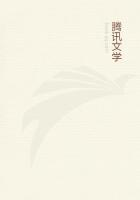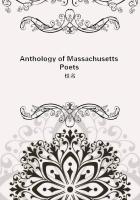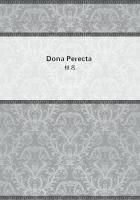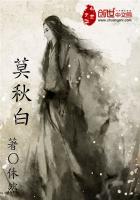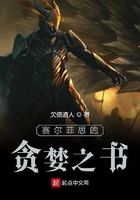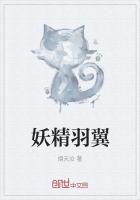Some examples of savage "ghost-stories," precisely analogous to the "facts" of the Psychical Society's investigations, may be adduced.
The first is curious because it offers among the Kanekas an example of a belief current in Breton folk-lore. The story is vouched for by Mr. J. J. Atkinson, late of Noumea, New Caledonia. Mr.
Atkinson, we have reason to believe, was unacquainted with the Breton parallel. To him one day a Kaneka of his acquaintance paid a visit, and seemed loth to go away. He took leave, returned, and took leave again, till Mr. Atkinson asked him the reason of his behaviour. He then explained that he was about to die, and would never see his English friend again. As he seemed in perfect health, Mr. Atkinson rallied him on his hypochondria; but the poor fellow replied that his fate was sealed. He had lately met in the wood one whom he took for the Kaneka girl of his heart; but he became aware too late that she was no mortal woman, but a wood-spirit in the guise of the beloved. The result would be his death within three days, and, as a matter of fact, he died. This is the groundwork of the old Breton ballad of Le Sieur Nan, who dies after his intrigue with the forest spectre. A tale more like a common modern ghost-story is vouched for by Mr. C. J. Du Ve, in Australia.
In the year 1860, a Maneroo black fellow died in the service of Mr.
Du Ve. "The day before he died, having been ill some time, he said that in the night his father, his father's friend, and a female spirit he could not recognise, had come to him and said that he would die next day, and that they would wait for him. Mr. Du Ye adds that, though previously the Christian belief had been explained to this man, it had entirely faded, and that he had gone back to the belief of his childhood." Mr. Fison, who prints this tale in his Kamilaroi and Kurnai, adds, "I could give many similar instances which have come within my own knowledge among the Fijians, and, strange to say, the dying man in all these cases kept his appointment with the ghosts to the very day".
It may, of course, be conjectured that the French introduced this belief into New Caledonia.
Page 247.
In the Cruise of the Beagle is a parallel anecdote of a Fuegian, Jimmy Button, and his father's ghost.
Without entering into a discussion of ghosts, it is plain that the kind of evidence, whatever its value may be, which convinces many educated Europeans of the existence of "veridical" apparitions has also played its part in the philosophy of uncivilised races. On this belief in apparitions, then, is based the power of the savage sorcerers and necromants, of the men who converse with the dead and are aided by disembodied spirits. These men have greatly influenced the beginnings of mythology. Among certain Australian tribes the necromants are called Birraark. "The Kurnai tell me," says Mr.
Howitt, "that a Birraark was supposed to be initiated by the 'Mrarts (ghosts) when they met him wandering in the bush. . . . It was from the ghosts that he obtained replies to questions concerning events passing at a distance or yet to happen, which might be of interest or moment to his tribe." Mr. Howitt prints an account of a spiritual seance in the bush. "The fires were let go down. The Birraark uttered a cry 'coo-ee' at intervals. At length a distant reply was heard, and shortly afterwards the sound as of persons jumping on the ground in succession. A voice was then heard in the gloom asking in a strange intonation, 'What is wanted?' Questions were put by the Birraark and replies given. At the termination of the seance, the spirit-voice said, 'We are going'. Finally, the Birraark was found in the top of an almost inaccessible tree, apparently asleep." There was one Birraark at least to every clan. The Kurnai gave the name of "Brewin" (a powerful evil spirit)to a Birraark who was once carried away for several days by the Mrarts or spirits. It is a belief with the Australians, as, according to Bosman, it was with the people of the Gold Coast, that a very powerful wizard lives far inland, and the Negroes held that to this warlock the spirits of the dead went to be judged according to the merit of their actions in life. Here we have a doctrine answering to the Greek belief in "the wizard Minos," Aeacus, and Rhadamanthus, and to the Egyptian idea of Osiris as judge of the departed. The pretensions of the sorcerer to converse with the dead are attested by Mr. Brough Smyth. "A sorcerer lying on his stomach spoke to the deceased, and the other sitting by his side received the precious messages which the dead man told." As a natural result of these beliefs, the Australian necromant has great power in the tribe. Mr. Howitt mentions a case in which a group of kindred, ceasing to use their old totemistic surname, called themselves the children of a famous dead Birraark, who thus became an eponymous hero, like Ion among the Ionians. Among the Scotch Highlanders the position and practice of the seer were very like those of the Birraark. "A person," says Scott, "was wrapped up in the skin of a newly slain bullock and deposited beside a waterfall or at the bottom of a precipice, or in some other strange, wild and unusual situation, where the scenery around him suggested nothing but objects of horror. In this situation he revolved in his mind the question proposed and whatever was impressed on him by his exalted imagination PASSED FOR THE INSPIRATION OF THE DISEMBODIEDSPIRITS who haunt these desolate recesses." A number of examples are given in Martin's Description of the Western Islands. In the Century magazine (July, 1882) is a very full report of Thlinkeet medicine-men and metamorphoses.
Kamilaroi and Kurnai, p. 253.
Page 254.
In the Jesuit Relations (1637), p. 51, we read that the Red Indian sorcerer or Jossakeed was credited with power to vanish suddenly away out of sight of the men standing around him. Of him, as of Homeric gods, it might be said, "Who has power to see him come or go against his will?" Here, in the first edition, occurred the following passage:

